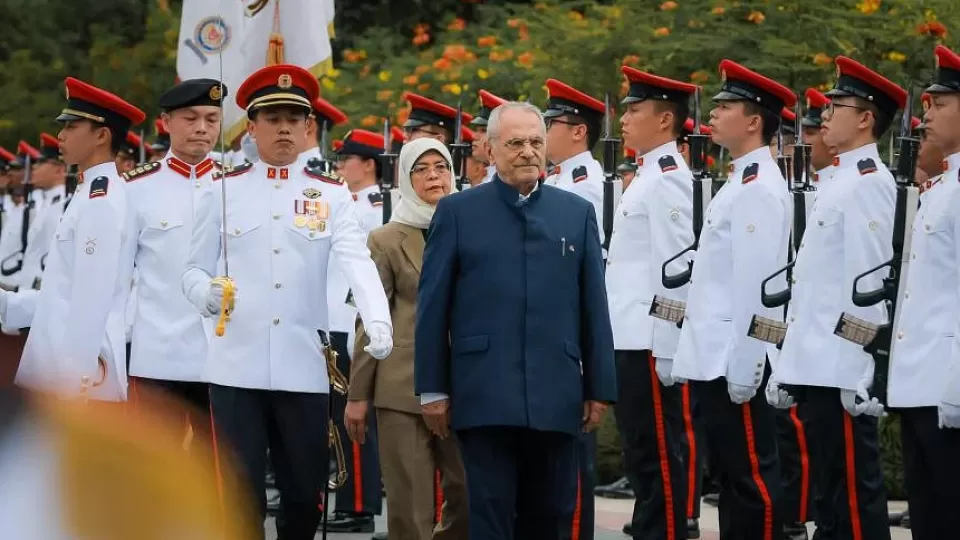December 9, 2022
SINGAPORE – Timor-Leste will work actively with the Asean Secretariat and others in the region to accelerate preparations for its membership to the regional grouping, said the country’s president, Dr Jose Ramos-Horta.
Speaking at a lecture on Thursday during a visit to Singapore, Dr Ramos-Horta said that it was preferable for his nation to become the 11th official member of Asean in 2023.
“We will not in 2023, not in 2025, not in 2030, be perfect. Perfection is only in heaven. And I assume that Asean leaders do not have the ambition to turn Asean into heaven on earth,” he said.
“So, we should be able to join Asean effectively with our imperfections, our inefficiencies.”
Dr Ramos-Horta was delivering the 45th Singapore Lecture, organised by ISEAS – Yusof Ishak Institute, as part of his six-day visit to Singapore.
His visit, which ends on Sunday, comes after leaders of Asean said in November at the 40th and 41st Asean summits that Timor-Leste will be admitted in principle as the 11th member state of the grouping, and will be granted observer status at Asean meetings, including at summit plenaries.
The leaders said then that Asean will formalise an “objective criteria-based road map” for Timor-Leste’s full membership.
This road map, to be formulated by Asean’s coordinating council, will be based on milestones identified in reports by the grouping’s fact-finding missions.
The road map will be tabled at the 42nd Asean Summit in 2023 for adoption.
Dr Ramos-Horta said that his nation welcomes this decision, and will make preparations for its membership to the bloc.
Timor-Leste was officially recognised as a country by the United Nations in 2002, making it Asia’s youngest democracy. The resource-rich country of 1.3 million people immediately started the process of accession to Asean, but formally applied for membership only in 2011.
During his lecture held at the Marina Bay Sands Convention Centre, Dr Ramos-Horta told an audience of more than 100 diplomats, academics and students about how Timor-Leste has transformed itself in recent times.
Unlike two decades ago, when the country was managed by expatriates, its ministries and official departments are now staffed by young Timorese with advanced degrees from its national universities, as well as some of the best academic institutions from around the world, he said.
Dr Ramos-Horta noted that Timor-Leste now has 1,200 medical doctors compared with the 90 it had at independence.
He also spoke of how the nation’s life expectancy has increased significantly, and how it has improved its management of diseases such as malaria, dengue and leprosy.
About 98 per cent of Timor-Leste’s population are Catholics, with about 50,000 Protestant Christians and a smaller Muslim community. Dr Ramos-Horta added that all religions are treated equally and that his nation does not have any political violence or radical religious or extremist groups.
Turning to the situation in Myanmar, he commended the Asean leaders for their dedicated effort to promote all-inclusive dialogue and end the violence there.
The bloc had in April 2021 drawn up peace plans with Myanmar after its military launched a coup against the country’s democratically elected government in February that year.
But these plans have hardly made progress, and thousands of people have been killed following the coup, which has left the nation in chaos.
Responding to a question from an audience member on Myanmar’s situation and on Asean’s approach, Dr Ramos-Horta said that the solution is an “open system” and continued dialogue between parties, but he stressed that this is not easily done.
“If it were easy, it would have been resolved,” he said, adding that the longer the situation is prolonged and deteriorates, the more it would be difficult for each side to back down.
Singapore Foreign Minister Vivian Balakrishnan, who chaired the lecture, said that Singapore remains committed to contributing to Timor-Leste’s future growth and development as the two nations marked the 20th anniversary of diplomatic relations.
In remarks before Dr Ramos-Horta’s lecture, Dr Balakrishnan said that more than 800 Timorese officials have attended training programmes under the Singapore Cooperation Programme in areas such as economic development, finance, public administration and urban development.
He also noted that Singapore had earlier on Thursday launched a training programme for Timor-Leste officials to support the country’s bid for Asean membership.
“As a relatively young country ourselves, Singapore knows first-hand the value of strong, consistent, reliable friendship, the importance of leveraging each other’s strengths for mutual support and prosperity. And I would add perhaps, even just as important, a deep reservoir of strategic trust between our two nations,” he said.
“And so it is on that note of friendship and hope that we look forward to the future achievements of Timor-Leste.”


